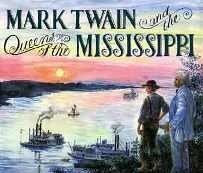


And now, the recent history of Evangelical Film.
A few years back, The Fellowship of the Ring made it to the big screen. Christians saw this as a great opportunity to witness. As for me, I witnessed a lot of horrific violence and didn’t feel particularly drawn to Christ through it (except perhaps through the fear of a merciless death at the hands of a crazed orc). But that was apparently just me – all my friends loved it.
Last year, ticket sales for The Passion of the Christ were fueled by grassroots religious folks. I preferred this movie, given that the violence was historically driven and reminded us that the center of our faith is the cross. Protestants didn’t seem to mind the film’s Roman Catholic flare (we’re not uptight these days) but would have enjoyed a bit more Resurrection.
Then, The Chronicles of Narnia came out last Christmas – a great story, pretty well done, and certainly a Christian message.
So a couple things have become evident to even the most casual observer:
1. Christians like movies, too.
2. Christians can help make movies big, big bucks.
Now along comes the next Christian film, United 93, concerning the doomed but heroic passengers on 9/11. As this article explains, this film is being promoted heavily among churches. After all, evangelicals are patriotic, will identify with Todd Beamer, and basically back Bush. (For the record, I was interested in seeing this movie before finding out that it was going to be heavily marketed to churches – but then again, I probably saw the commercial on Fox News.)
I guess it’s a good thing that Christians are targeted for movies about heroism. But isn’t it a bit worrisome that Christians are becoming such a predictable marketing segment – and perhaps not much more than this? Does anyone else feel a bit used?
Many Christians I know are frustrated by the way "separation of church and state" is viewed in mainstream America these days. It seems church is being squeezed out of the public square altogether. But apparently not in the movies. How exciting it is to see Christians finally get a word in edgewise!
But must our words be so . . . scripted?













